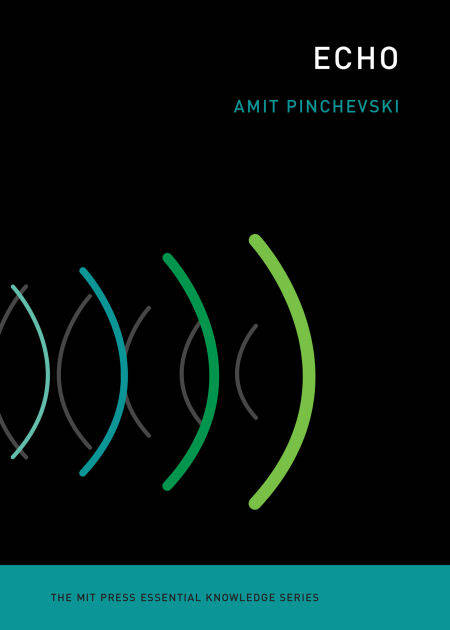
- Afhalen na 1 uur in een winkel met voorraad
- Gratis thuislevering in België vanaf € 30
- Ruim aanbod met 7 miljoen producten
- Afhalen na 1 uur in een winkel met voorraad
- Gratis thuislevering in België vanaf € 30
- Ruim aanbod met 7 miljoen producten
Zoeken
€ 16,71
+ 16 punten
Omschrijving
An exploration of echo not as simple repetition but as an agent of creative possibilities.
In this volume in the MIT Press Essential Knowledge series, Amit Pinchevski proposes that echo is not simple repetition and the reproduction of sameness but an agent of change and a source of creation and creativity. Pinchevski views echo as a medium, connecting and mediating across and between disparate domains. He reminds us that the mythological Echo, sentenced by Juno to repeat the last words of others, found a way to make repetition expressive. So too does echo introduce variation into sameness, mediating between self and other, inside and outside, known and unknown, near and far. Echo has the potential to bring back something unexpected, either more or less than what was sent.
Pinchevski distinguishes echo from the closely related but sometimes conflated reflection, reverberation, and resonance; considers echolalia as an active, reactive, and creative vocalic force, the launching pad of speech; and explores echo as a rhetorical device, steering between appropriation and response while always maintaining relation. He examines the trope of echo chamber and both destructive and constructive echoing; describes various echo techniques and how echo can serve practical purposes from echolocation in bats and submarines to architecture and sound recording; explores echo as a link to the past, both literally and metaphorically; and considers echo as medium using Marshall McLuhan’s tetrad.
In this volume in the MIT Press Essential Knowledge series, Amit Pinchevski proposes that echo is not simple repetition and the reproduction of sameness but an agent of change and a source of creation and creativity. Pinchevski views echo as a medium, connecting and mediating across and between disparate domains. He reminds us that the mythological Echo, sentenced by Juno to repeat the last words of others, found a way to make repetition expressive. So too does echo introduce variation into sameness, mediating between self and other, inside and outside, known and unknown, near and far. Echo has the potential to bring back something unexpected, either more or less than what was sent.
Pinchevski distinguishes echo from the closely related but sometimes conflated reflection, reverberation, and resonance; considers echolalia as an active, reactive, and creative vocalic force, the launching pad of speech; and explores echo as a rhetorical device, steering between appropriation and response while always maintaining relation. He examines the trope of echo chamber and both destructive and constructive echoing; describes various echo techniques and how echo can serve practical purposes from echolocation in bats and submarines to architecture and sound recording; explores echo as a link to the past, both literally and metaphorically; and considers echo as medium using Marshall McLuhan’s tetrad.
Specificaties
Betrokkenen
- Auteur(s):
- Uitgeverij:
Inhoud
- Aantal bladzijden:
- 232
- Taal:
- Engels
- Reeks:
Eigenschappen
- Productcode (EAN):
- 9780262368827
- Verschijningsdatum:
- 9/05/2022
- Uitvoering:
- E-book
- Beveiligd met:
- Adobe DRM
- Formaat:
- ePub

Alleen bij Standaard Boekhandel
+ 16 punten op je klantenkaart van Standaard Boekhandel
Beoordelingen
We publiceren alleen reviews die voldoen aan de voorwaarden voor reviews. Bekijk onze voorwaarden voor reviews.








